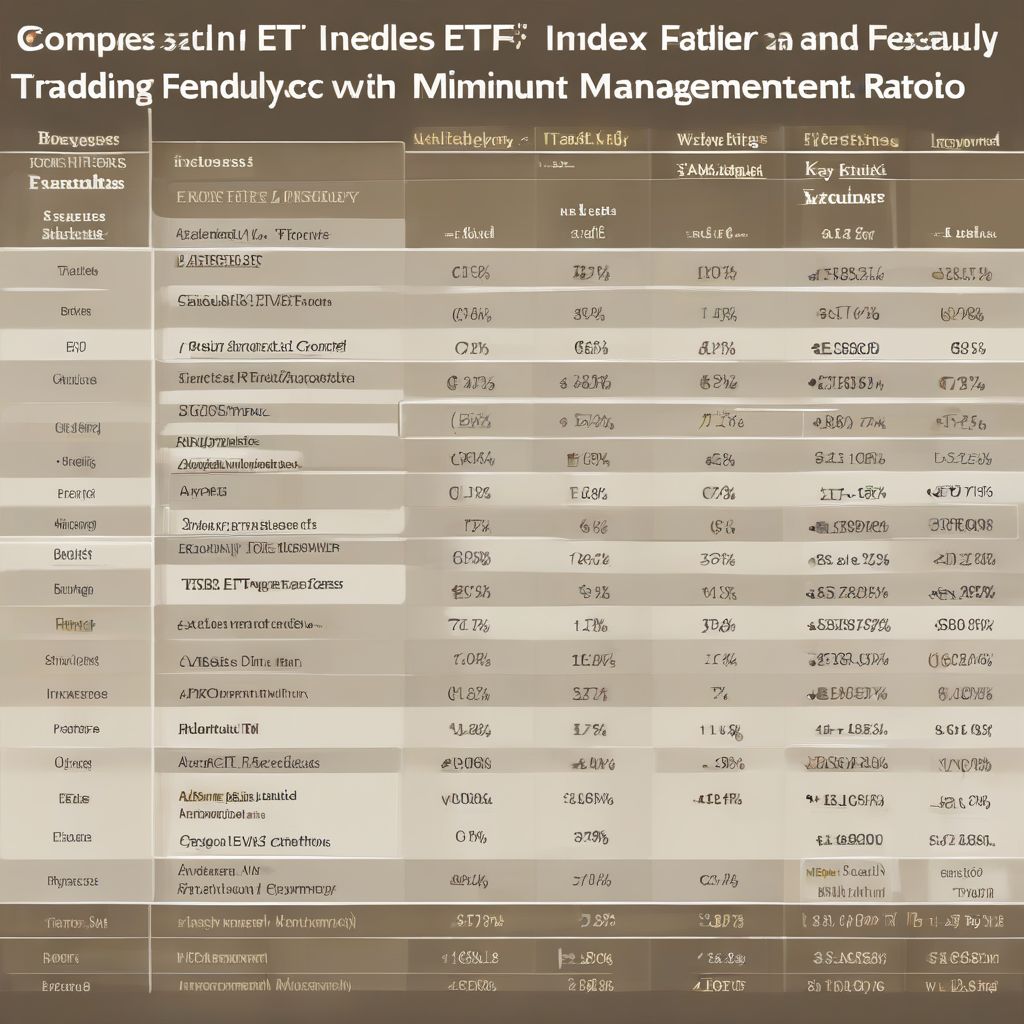Have you ever dreamt of building a strong financial future, one where your money works as hard as you do? Investing is a key ingredient in that recipe, and two popular options are Exchange Traded Funds (ETFs) and index funds. Both offer diversified investment opportunities, but understanding the difference between ETFs and index funds is crucial for making informed decisions aligned with your goals. So, let’s break down these investment vehicles and explore which might be the right fit for your financial journey.
What are ETFs and Index Funds?
Index Funds: Mirroring the Market
Imagine owning a tiny piece of every company in a particular market sector. That’s the essence of an index fund. It’s a type of mutual fund designed to track a specific market index, like the S&P 500. This means the fund’s holdings mirror the index’s composition, providing instant diversification. Index funds are managed passively, aiming to replicate the index’s performance rather than actively picking stocks.
ETFs: Trading Like Stocks
ETFs also track indexes, but they trade like stocks on exchanges. This offers intraday liquidity – you can buy and sell them throughout the trading day, unlike mutual funds which are typically priced at the end of the day. ETFs often come with lower expense ratios compared to actively managed mutual funds, making them an attractive option for cost-conscious investors.
 ETF vs Index Fund Comparison
ETF vs Index Fund Comparison
Key Differences: ETFs vs. Index Funds
Trading Flexibility
The most significant difference between ETFs and index funds lies in their trading mechanism. ETFs offer the flexibility of trading throughout the day, allowing you to react to market fluctuations quickly. Index funds, on the other hand, can only be bought or sold at the end of the trading day. This distinction can be crucial for investors who prefer more control over their trading timing. “Think of ETFs as sprinters and index funds as marathon runners,” says fictional financial advisor, Sarah Miller, author of “Investing for a Secure Future.” “ETFs are nimble and quick, while index funds are built for the long haul.”
Minimum Investment Requirements
Some index funds may have minimum investment requirements, which can be a barrier for new investors. ETFs generally don’t have such restrictions, allowing you to invest smaller amounts. This accessibility makes ETFs appealing to those starting their investment journey.
Expense Ratios and Fees
Both ETFs and index funds generally have lower expense ratios compared to actively managed funds. However, ETFs often edge out index funds in this department. “Every penny saved on fees contributes to your long-term gains,” Miller notes.
Tax Efficiency
ETFs tend to be more tax-efficient than index funds due to their unique creation and redemption mechanism. This structure minimizes capital gains distributions, potentially leading to lower tax liabilities.
Which is Right for You?
Choosing between ETFs and index funds depends on your individual investment style and goals. If you value intraday trading flexibility and lower expense ratios, ETFs might be a good fit. If you prefer a simple, set-it-and-forget-it approach and potentially lower minimum investment requirements, index funds could be a better choice.
Long-Term Investors
For long-term investors like those saving for retirement, the difference between ETFs and index funds becomes less significant. The lower expense ratios of both make them suitable for long-term growth. You can even consider investing in both to leverage their respective advantages. Remember the golden rule of investing: Time in the market beats timing the market.
Active Traders
If you are an active trader who enjoys capitalizing on short-term market movements, ETFs’ intraday trading capability makes them a more suitable choice. “ETFs empower you to seize opportunities as they arise,” Miller explains.
Making Informed Decisions
Understanding your risk tolerance, investment horizon, and financial goals is paramount before investing in any financial product. Consult with a qualified financial advisor to discuss your individual circumstances and determine the best investment strategy for you. They can help you navigate the complexities of the market and tailor a plan that aligns with your specific needs.
Conclusion: Empowering Your Financial Journey
Both ETFs and index funds offer valuable tools for building a diversified investment portfolio. By understanding the nuances of each, you can make informed choices that empower your financial journey. Remember, consistent investing, even small amounts, combined with a well-defined strategy, can pave the way toward achieving your financial aspirations. What are your thoughts on ETFs and Index Funds? Share your experiences and questions in the comments below. Explore further insights into investing for retirement as a beginner by visiting How to Invest for Retirement as a Beginner.



